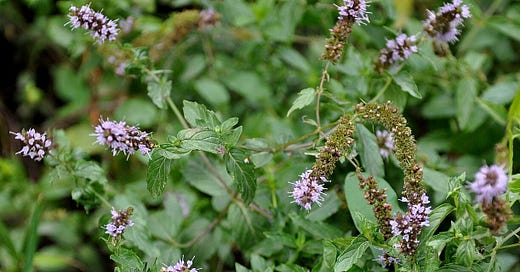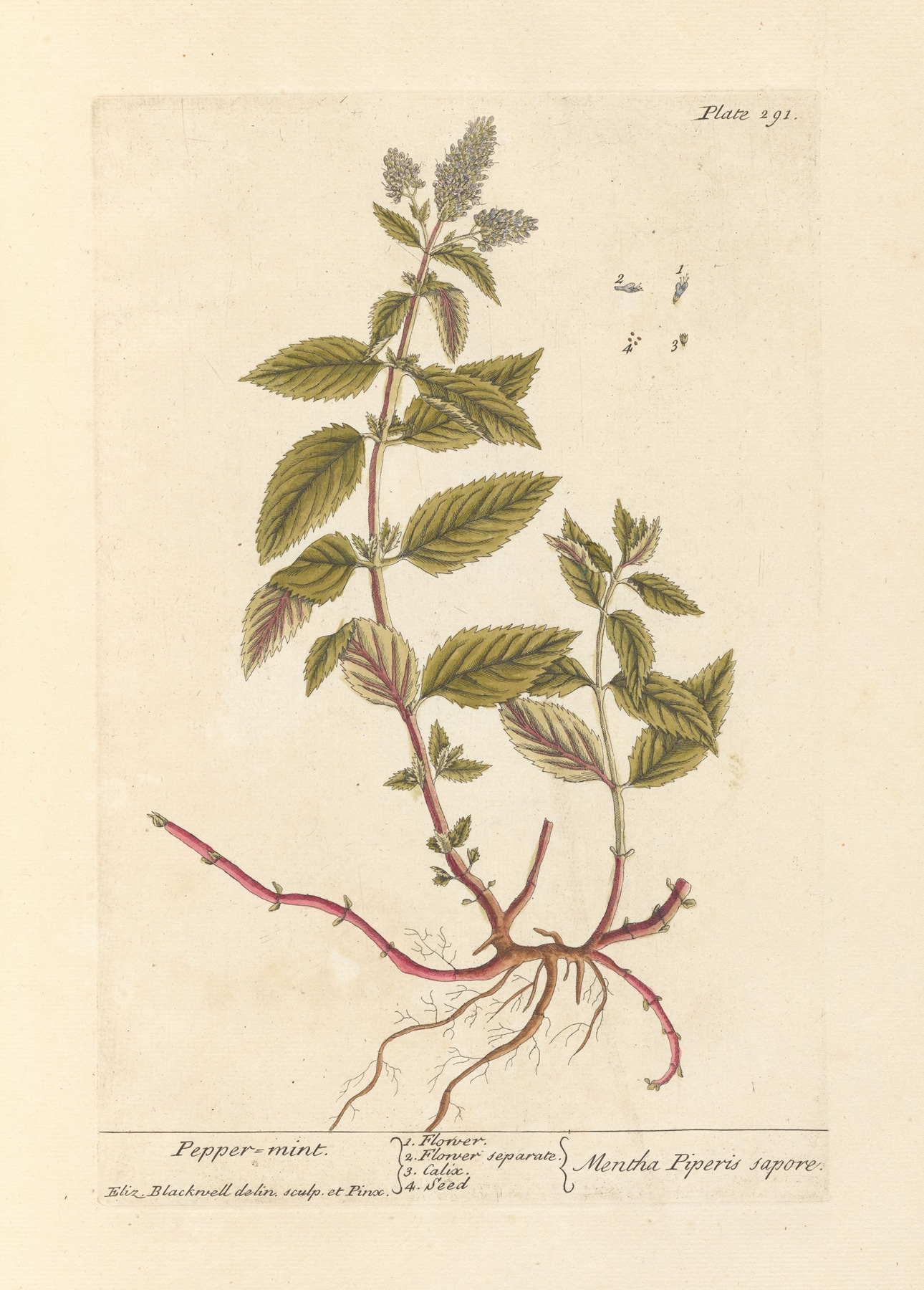Mint is a green frost, a spring chill, a pouring of cold water on new shoots. Mint is a cleaning, a making way. Awake, awake! Its language is invigorating and quick: zip, zing, zest, burst, blast. Clear, bright, cool. Something young, something ready. This is a plant of Mercury.
Inhale mint, sip mint, and a rush of fresh comes through. Air in your nostrils, air in your throat, air in your mouth, and it is not yours. It’s a mint wash, cleaning the floors, cleaning the walls, cleaning your tongue, cleaning the roof of your mouth, cleaning the cathedral of your head. The freshness invites them, just as you clean your home before guests arrive — it’s good manners — but the freshness also is them, that air mingling with your own. Another breath in your breath, another voice in your voice.
Mint is a face of the planet of breath, of voice, of sound, of oracular speech. Mercury, the magician. Mercury, the translator. Mercury, the mouth and lungs. Mercury, the youth, a divine fresh shoot. Mercury who is neither/nor. Mercury who opens roads and walks with you on them.
Like fennel, a Mercury plant, mint freshens the breath and soothes a nervous belly. Mint clears the mind and lungs. Like lavender, another Mercury herb, mint helps with cognitive function and memory. Mint relaxes us enough to find focus while stimulating us enough to make connections. Mint can be either cooling or warming (or both) depending on preparation. This both/and quality is common for Mercury-ruled plants.
What to expect in this post:
It’s Mercury, so we’ll have fun with etymology
The board game Candy Land
The Greek myth about mint
Me disagreeing, politely, with Ficino, Culpeper, and Agrippa about who rules mint
My personal relationship with mint
A peppermint mini-monograph
That time Ficino said Dionysus played herbalist and gave mint to Venus
A lengthy resources section





